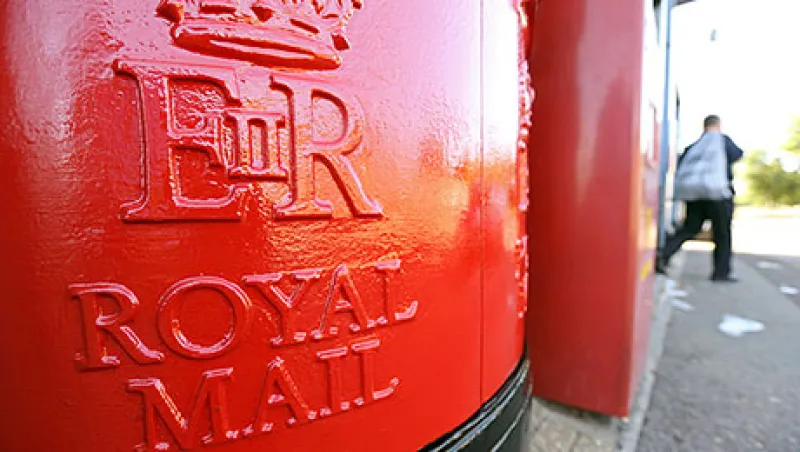The U.K.’s Royal Mail said it will offer employees a new retirement plan following negotiations with union officials, but the proposed scheme drew mixed reactions.
Royal Mail, the U.K.’s largest mail company, has unveiled a new defined benefit pension scheme that the postal company hopes will stave off the first-ever national postal strike in the U.K.
The company had been warned by employee unions in May that plans to replace the £7.4 billion ($9.7 billion) defined benefit retirement scheme with a defined contribution system could lead to industrial action. The Royal Mail, which was privatized in 2013, had told workers earlier this year that the cost of providing a defined benefit pension plan was unsustainable and that it would wind down the plan in its current form.
But after plans to switch entirely to a defined contribution plan were met with threats of a strike, the company went back to the drawing board, revealing its latest plans on Friday. Under the new scheme, Royal Mail would offer employees the choice of two pension options — one defined contribution and one defined benefit — starting on April 1, 2018.
Two labor unions representing Royal Mail workers had decidedly mixed reactions to the plan, with trade union Unite calling it an improvement on the original proposal and the Communications Workers Union (CWU) saying the new proposal represents “a significant shortfall in the pensions promise,” according to reports.
In the U.K., defined benefit schemes were once commonplace, particularly among state-run organizations, which the Royal Mail once was. However, these schemes have become increasingly rare, with most companies preferring to offer defined contribution schemes.
On Friday Royal Mail said it expected the cost of the new proposed plans to be funded by the £400 million of annual pension contributions currently paid in by both the company and employees together.
It is able to fund the new “Defined Benefit Cash Balance” plan because any increases to the value of the fund in excess of contributions will be on a discretionary basis based on how the underlying investments perform. Under the existing DB plan, increases to the value of the fund in excess of paid contributions are guaranteed each year.
Under the new plans, Royal Mail will increase its contribution to members’ retirement accounts from the current 12.6 percent to 13.6 percent each year. Member contributions would represent an additional 6 percent.
In a written statement, the company said the new retirement offer was based on “extensive talks” with its employee unions, adding that company payments into the company’s defined contribution plan would also increase, by 1 percent, applicable to current and future members.
Unite, the U.K.’s largest trade union, said it will ballot its 6,000 members on the pension proposals that have been put forward by the Royal Mail. Brian Scott, Unite officer for the Royal Mail, said in a written statement that the ballot would close on August 7 and that the union is not making any formal recommendation on whether its members should accept the proposals.
“We think it is important that Unite members have an opportunity to express an opinion on what is being put forward by the company,” Scott said in the statement. “The latest position is an improvement from the original proposal.”
Scott added that union representatives had endured “many discussions” with the company in recent months that had been “difficult,” but he said the trade union considered the proposals palatable.
“The Unite negotiating team consider that what is on offer is the best achievable in the circumstances,” he said in the statement.
The CWU had a decidedly different reaction, with CWU deputy general secretary Terry Pullinger saying, “It does not meet our aspiration of a wage in retirement pension scheme, but rather still promotes the conventional wisdom of a cash-out arrangement at the point of retirement,” according to a Financial Times report.
“We very much appreciate the care that the CWU applied to its proposal. But, unfortunately, it does not meet the fundamental principles underpinning our 2018 Pension Review. They are: sustainability, affordability and security,” a Royal Mail spokeswoman said in a subsequent statement to Institutional Investor, referring to an alternative proposal floated by the union. “We also calculate the CWU proposal would cost significantly more than we can afford.”







